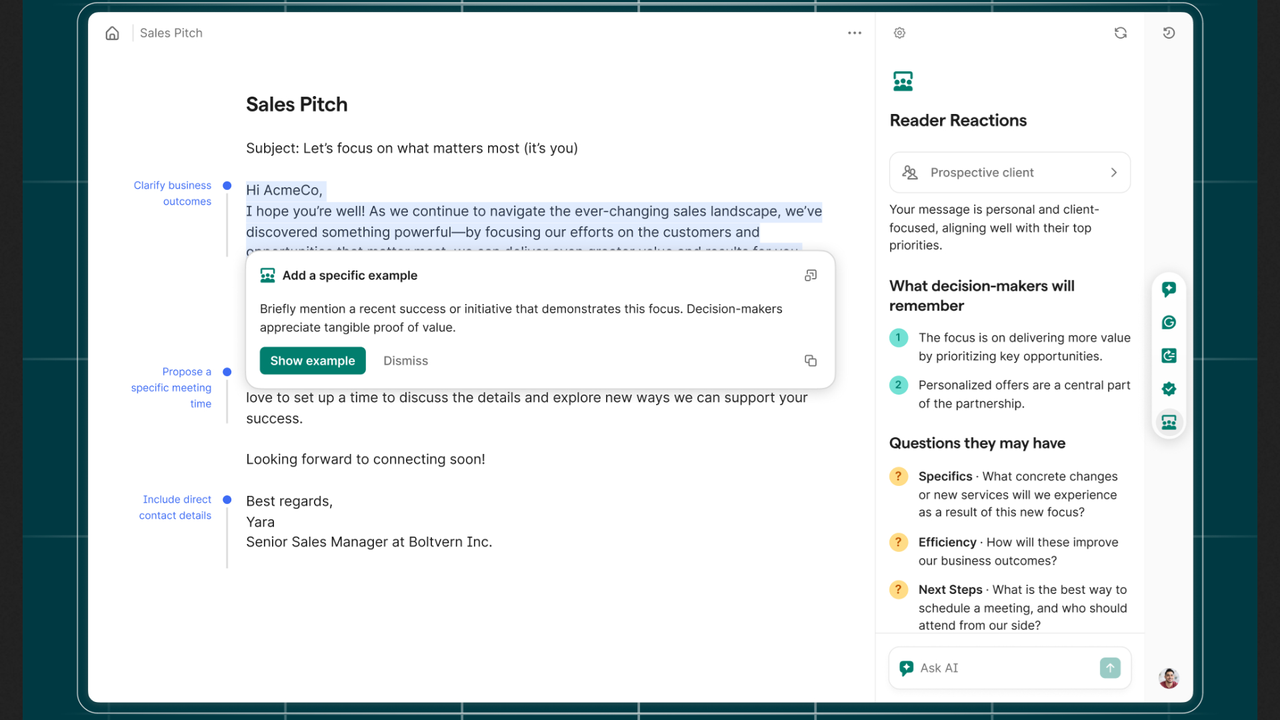
- Grammarly has debuted a collection of specialized AI tools for aiding students
- The AI agents can simulate grading, find citations, and predict reader reactions
- The tools are part of the new Grammarly Docs platform
Grammarly is looking to take a more active role in helping students write with a new set of AI agents that go well beyond simply ensuring you use semicolons correctly. The company has released a set of eight AI agents built for specific writing support, embedding them directly into a new writing platform called Docs (not the Google kind).
The new features combine AI abilities with quieter digital assistance. You don’t need to write a prompt asking for specific help, just tap on the right tool, and Grammarly’s AI will help find sources, predict how a professor will react to your wordplay, and make sure you don’t sound like an AI yourself (RIP em-dash).
Grammarly has been augmenting its services with AI for a while, including rewriting tools and an AI chatbot last year. The new agents go beyond that reactive approach by using the context of your writing and the reason you’re writing it to offer advice without you having to explain it explicitly.
Grammarly is pitching the new tools to both students and professionals, but the academic demand seems particularly dire. Students are currently torn between doing whatever it takes to succeed academically and compromising that success with unethical AI use that bypasses the actual learning.
Grammarly’s bet is that students who don’t want to cheat themselves with AI can use these tools to help them learn, not do it for them. They could use the AI Grader for feedback that mimics a real instructor’s assessment using course-specific materials and details of what the teacher is looking for. The Citation Finder agent can check your sources and help you find better ones, formatting them properly, too. Plus, the Expert Review agent can offer domain-specific feedback on writing in fields like law and medicine, measuring arguments against professional standards.
And if you perhaps inadvertently hew too closely to a source, the Plagiarism Checker will help flag unintentional copying done when you’re up late. And the AI Detector checks to make sure your fatigue hasn’t made your writing seem machine-generated.
Learning for a world of AI
The tools can help students succeed in the long term, according to Grammarly, by teaching them how to research and write well without compromising ethics, even though AI tools and shortcuts are everywhere.
According to the company’s internal research, only 18% of college students feel “very prepared” to use AI professionally after graduation, despite the demand for AI literacy among employers. Grammarly wants to become the training ground for those skills without undermining academic integrity along the way. You can access all these tools in Grammarly’s new docs platform, both as a free and paid subscriber.
Of course, Grammarly’s not the only player chasing this idea. Microsoft Copilot in Word offers some similar features to Grammarly, as does Google’s Gemini AI in Google Docs. But Grammarly’s approach is both more comprehensive and streamlined because of its focus on avoiding having an AI write everything for the user. That’s what might make this update stick.
Because while Grammarly could have just been another AI writing tool, it made its AI support take a step back. As imperfect as all AI tools are, at least this approach tries to address the very real crisis of people having no idea how to use AI writing aides ethically, if they even want to.


Leave A Comment